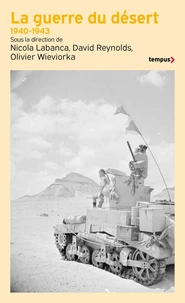The Cold War dominated history for nearly half a century, locking two superpowers in a global rivalry that ended only with the collapse of the Soviet Union. For millennia, the outcomes of war had been determined on the battlefield, but the most decisive moments of the Cold War occurred in the carefully worded exchanges of world leaders meeting face to face. In the shadow of the bomb, the summit meeting offered an opportunity for heads of state to rattle sabers and cross swords without triggering nuclear apocalypse.
Drawing on extensive archival material, prizewinning historian David Reynolds describes the outsized personalities who negotiated the course of twentieth-century history: Neville Chamberlain, Adolph Hitler, Winston Churchill, Joseph Stalin, Franklin Delano Roosevelt, John F. Kennedy, Nikita Khrushchev, Richard Nixon, Leonid Brezhnev, Jimmy Carter, Anwar Sadat, Menachem Begin, Mikhail Gorbachev, and Ronald Reagan.
While these men addressed epochal issues, the outcome of each meeting was often determined more by individual personality than by international politics. Mishandled summits-Munich in 1938 and Yalta in 1945-brought about World War II and the Cold War, respectively. Kennedy's disastrous performance in Vienna in 1961 nearly brought about World War III. But successful summits in Moscow (1972), Camp David (1978), and Geneva (1985) led to dénte, a partial settlement in the Middle East, and a peaceful end to the Cold War.
Written with verve and insight, Summits vividly describes the statesmen who stood, if only briefly, on top of the world. By revealing both the promise and the pitfalls of international diplomacy, David Reynolds offers valuable lessons as we find ourselves confronting once again a war without end.
The Cold War dominated history for nearly half a century, locking two superpowers in a global rivalry that ended only with the collapse of the Soviet Union. For millennia, the outcomes of war had been determined on the battlefield, but the most decisive moments of the Cold War occurred in the carefully worded exchanges of world leaders meeting face to face. In the shadow of the bomb, the summit meeting offered an opportunity for heads of state to rattle sabers and cross swords without triggering nuclear apocalypse.
Drawing on extensive archival material, prizewinning historian David Reynolds describes the outsized personalities who negotiated the course of twentieth-century history: Neville Chamberlain, Adolph Hitler, Winston Churchill, Joseph Stalin, Franklin Delano Roosevelt, John F. Kennedy, Nikita Khrushchev, Richard Nixon, Leonid Brezhnev, Jimmy Carter, Anwar Sadat, Menachem Begin, Mikhail Gorbachev, and Ronald Reagan.
While these men addressed epochal issues, the outcome of each meeting was often determined more by individual personality than by international politics. Mishandled summits-Munich in 1938 and Yalta in 1945-brought about World War II and the Cold War, respectively. Kennedy's disastrous performance in Vienna in 1961 nearly brought about World War III. But successful summits in Moscow (1972), Camp David (1978), and Geneva (1985) led to dénte, a partial settlement in the Middle East, and a peaceful end to the Cold War.
Written with verve and insight, Summits vividly describes the statesmen who stood, if only briefly, on top of the world. By revealing both the promise and the pitfalls of international diplomacy, David Reynolds offers valuable lessons as we find ourselves confronting once again a war without end.

 , qui est-ce ?
, qui est-ce ?